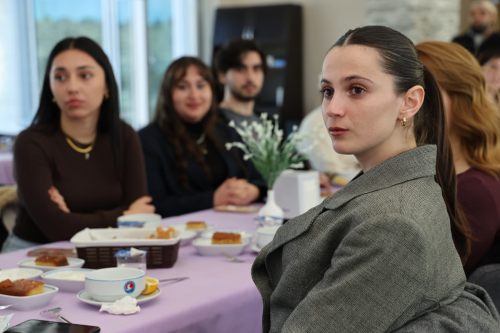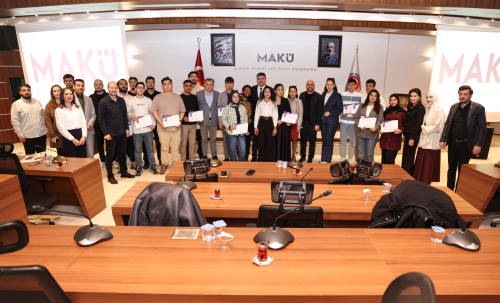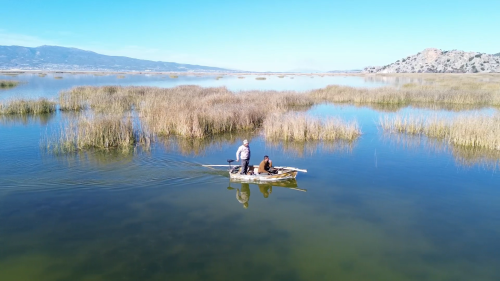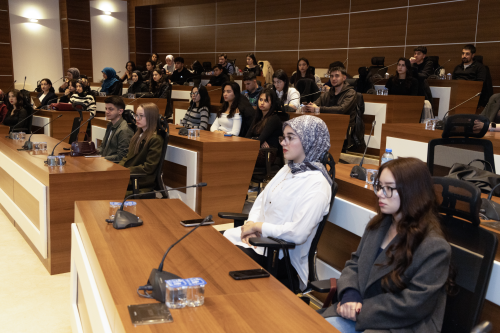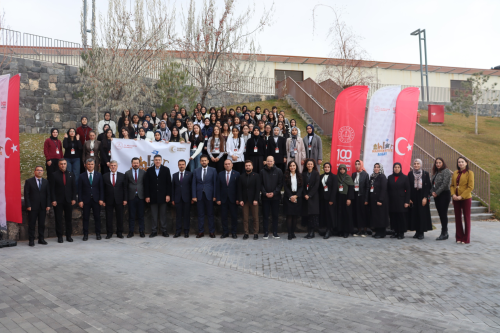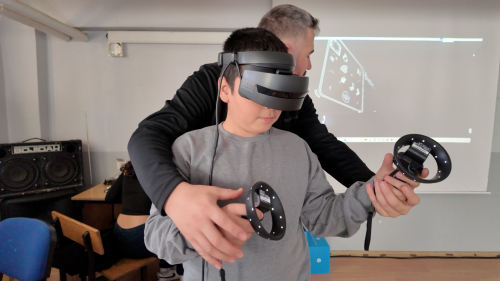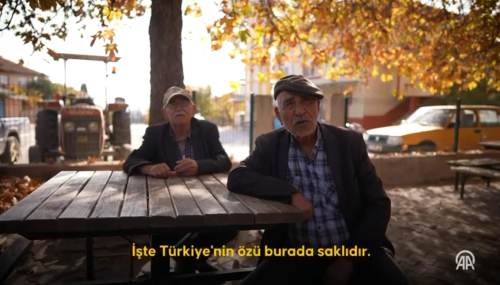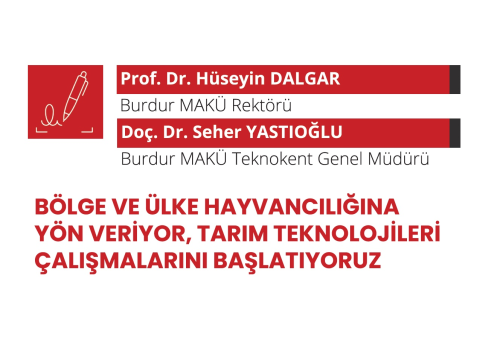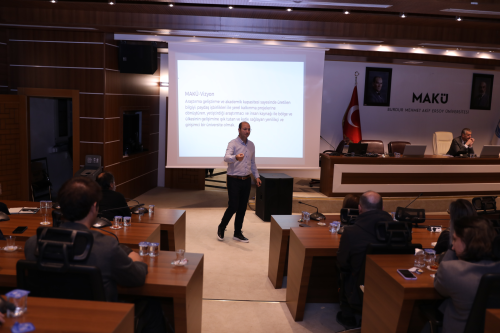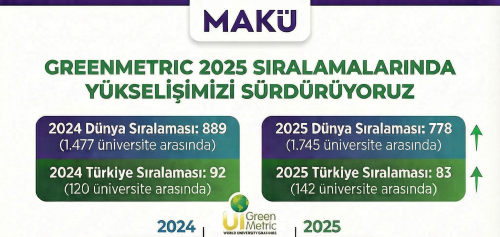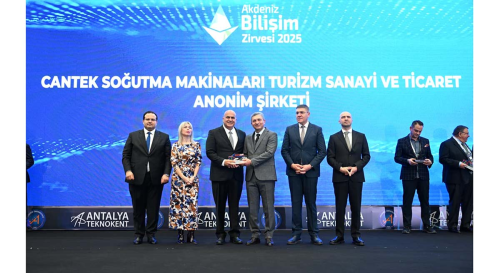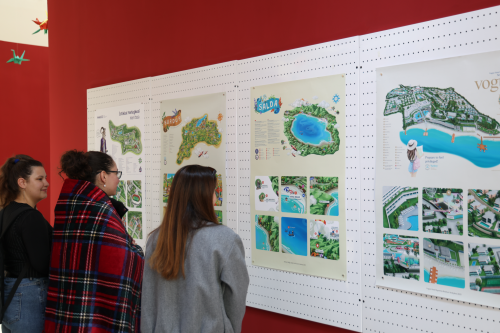High Efficiency and Qualified Embryo Transfer for a Major Leap in Animal Husbandry
Yapılış Tarihi | 22 November 2024, Friday
Burdur Mehmet Akif Ersoy University (MAKÜ), as the first university in Turkey with embryo production permission, continues its embryo transfer studies outside the university farm. These studies, which started in June, began to bear fruit in a short time. Pregnancy checks of animals that underwent embryo transfer are carried out by the faculty members of MAKÜ Faculty of Veterinary Medicine.
Established about six years ago and reaching embryo production capacity in the last three years, the Genetic and Embryo Technologies Application and Research Center (GETEM) offers services to breeders who want to obtain more offspring from breeds with high genetics. MAKÜ, conducting embryo transfer studies at the Karagöz farm located in Bucak, offers an important alternative to breeders in the region.
Embryo Transfer is Gaining Increasing Value
Expressing his satisfaction with the conduct of embryo transfer studies at the Karagöz farm, business owner Mustafa Erdem Karagöz said, “I am an agricultural engineer. This is our family business. We started embryo transfer studies 4 months ago. We wanted to perform embryo transfer from the best animals of our herd to have higher quality offspring. Hopefully, we will have our offspring in 5 months. With the contributions of MAKÜ Faculty of Veterinary Medicine and especially my teacher Yunus, embryo transfer is gaining increasing value in the region,” he said.
We Obtain Quality Offspring with Embryo Transfer
GETEM Director Prof. Dr. Yunus Çetin, who conducted the control of 4 pregnant animals born from embryo transfer at Karagöz Farm located in İncirdere village of Bucak district, provided information about the studies. Çetin said, “We conducted embryo transfer studies here in June. We transferred the embryos obtained from the good animals of the enterprise to recipient cows. Currently, we have 4 pregnant animals; 2 cows and 2 heifers. These animals will give birth to purebred and high-yielding offspring as a result of embryo transfer,” he said.
Stating that the pedigree records of the offspring obtained through embryo transfer are kept regularly, Çetin said, “In this way, the real pedigree information of the animals born from embryo transfer is recorded. The information we report to the Provincial Directorate of Agriculture ensures that pedigree records continue healthily,” he said.
Local Embryo Transfer Will Provide Great Contributions to the Region and Country Economy
Rector Dalgar: “It is a source of pride for all of us to see that the ‘University in 81 Provinces’ project, which is the higher education vision and policy of our President, and the Regional Development-Oriented University model not only increase access to higher education but also make great contributions to the development and growth of regions."
MAKÜ Rector Prof. Dr. Hüseyin Dalgar made the following statements regarding the contributions of embryo transfer studies to the country's economy:
"Among the many projects carried out by our university in the field of animal husbandry, embryo transfer technology is one of the most important studies. In this context, we have achieved very successful results from the embryo transfers we conducted in volunteer farms in Burdur province, and the follow-up of our studies is still ongoing.
Our aim is to increase the genetic capacity and productivity average of the herd by multiplying animals with superior genetic traits and high productivity in farms. More clearly, embryos are taken from high-yielding animals in the same farm, and low-yielding animals are used as surrogate mothers; thus, a genetically superior and high-yielding herd is formed in a short time.
We are conducting these studies in coordination with our Ministry of Agriculture in Burdur. Additionally, we have the goal of spreading this technology nationwide with the guidance of our Ministry of Agriculture. One of the most important contributions of embryo transfer to the country's animal husbandry is meeting the need for high-yielding animals, which are generally imported from abroad in Turkey, with embryos obtained from our existing animals. In the long term, it is aimed that these animals with superior genetic structure produced in Burdur will become sellable throughout Turkey. The results we have obtained in this direction are extremely promising, and our field studies are continuing rapidly.
Moreover, our university has the privilege of being the only university in Turkey licensed for embryo transfer. The 100% local embryos produced at the Burdur Mehmet Akif Ersoy University Embryo Transfer Center can be transferred to farms all over Turkey within the framework of regulations. We will also start the transfer of ready embryos whose production is completed at our center in the coming days.
As Burdur Mehmet Akif Ersoy University, with the responsibility of being a specialized university in the field of animal husbandry, we have now started to receive the tangible results and contributions to our country of the studies we have been intensively conducting for the last 4-5 years. This makes us extremely happy.
It is a source of pride for all of us to see that the ‘University in 81 Provinces’ project, which is the higher education vision and policy of our President, and the regional development universities model not only increase access to higher education but also make great contributions to the development and growth of regions."
Diğer Haberler
